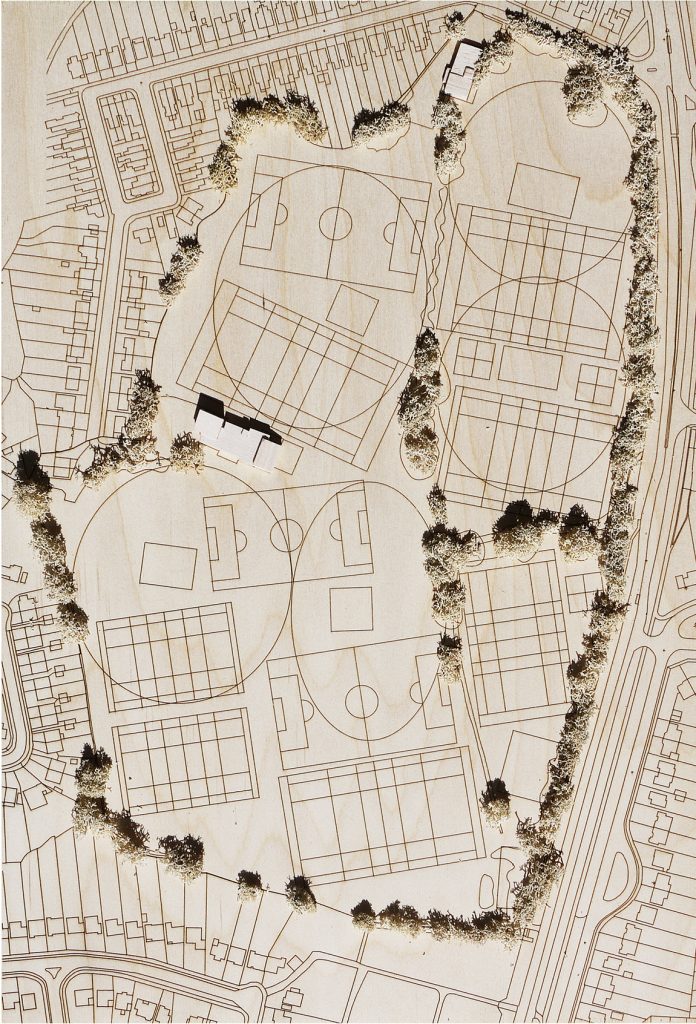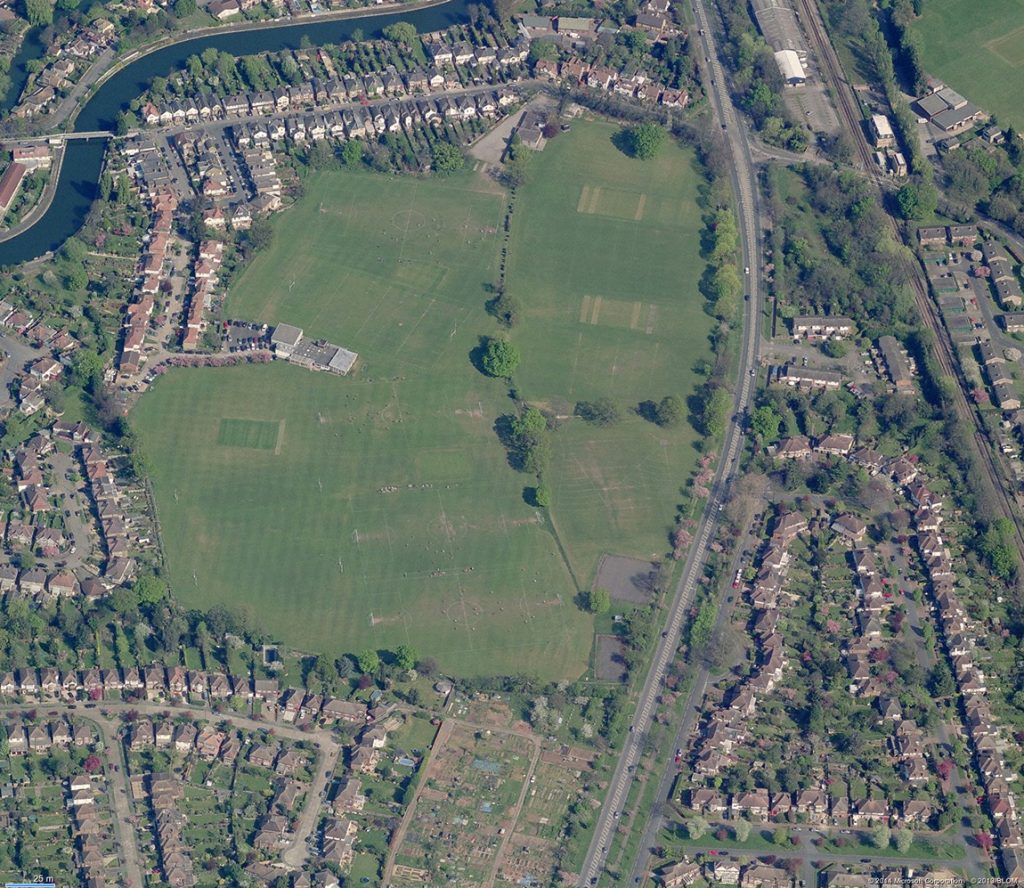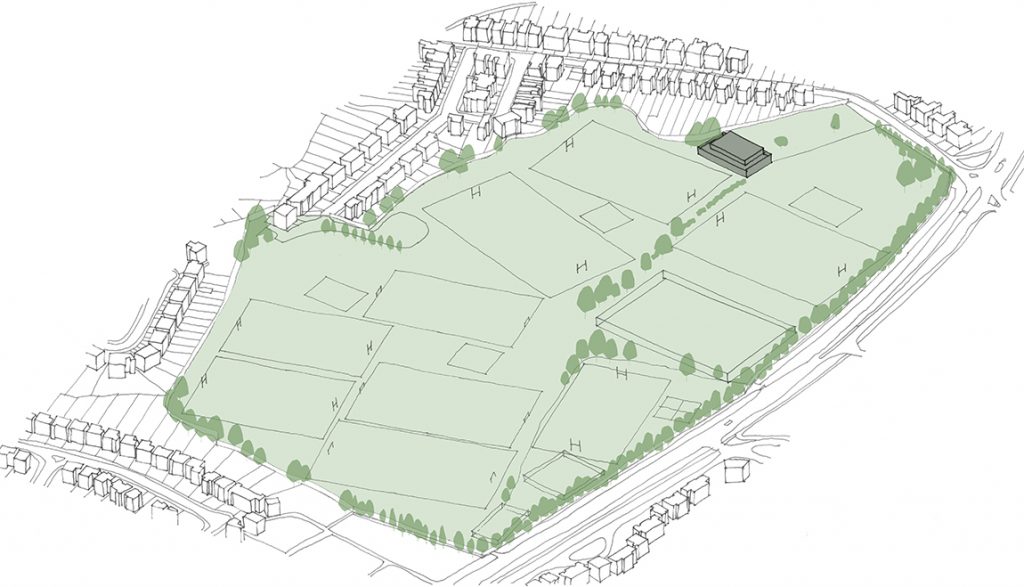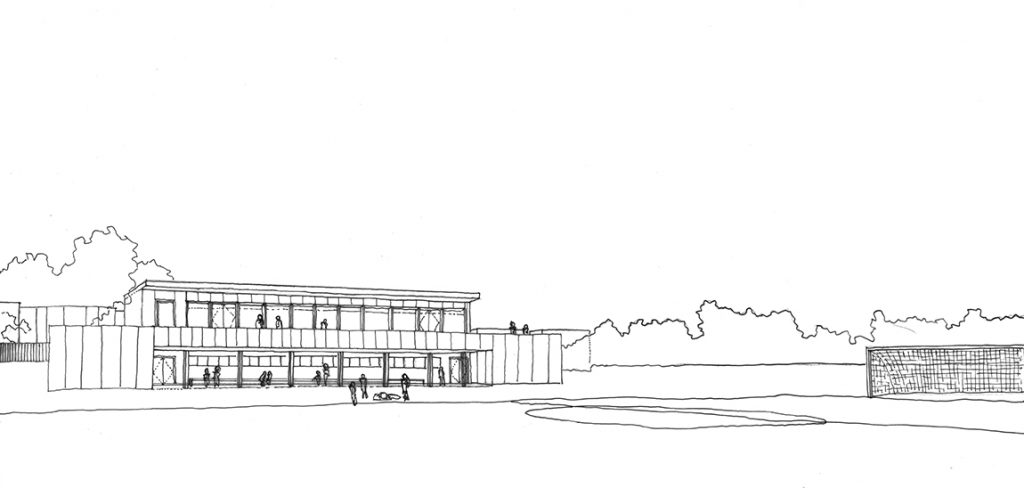Ageing and dilapidated changing blocks, insufficient space for all teams to change before and after games, matches being postponed after the slightest trickle of rain has rendered pitches unplayable… And no cash available for improvements. This is just a sample of the challenges the owners of this sports ground in SW London faced, a situation that will be familiar to anyone involved with grassroots sports.
Grist’s Memorial Playing Fields, like many amateur sports facilities, has been run in the main by a passionate group of volunteers, relying on the goodwill and generosity of club-members to get things done. The grounds here are also used by The Tiffin School for games lessons and competitive fixtures.
New leadership within the resident football club has seen team numbers jump from two to eight sides, with a further women’s XI and tie-ins with local junior teams for use of the grounds. At the same time, the school has been expanding their intake, including the introduction of female pupils for the first time. All while the two existing changing room buildings were starting to deteriorate and the pitches needed urgent landscaping works.
Numerous solutions had been mooted over the years, however we quickly established that these had not been aligned to a coherent strategy or vision for the site, which had hampered opportunities for grant or other funding. As is common with such projects, our initial investigations revealed that there were divergent opinions on how the site should be run and what it should become.
We engaged in a series of workshops with all stakeholders, to draw together the ambitions, constraints, challenges and opportunities for the grounds. The land is within a flood zone and has significant transport considerations in addition to the capacity questions. Compiling these factors into a single digestible report, we produced a feasibility study that projected multiple scenarios for the future of the site, each offering an alternative means of addressing the context.
This document was then used to apply for funding from numerous bodies, including Sport England and the FA, and has already delivered over £100,000 of investment at the site – including new land drains and maintenance equipment, as well as new goalposts and short-term building improvement works.
We are delighted and proud that our work has now become the basis of a new strategy that will lead to the eventual replacement of the pavilions and a sustainable long-term growth at the site.




